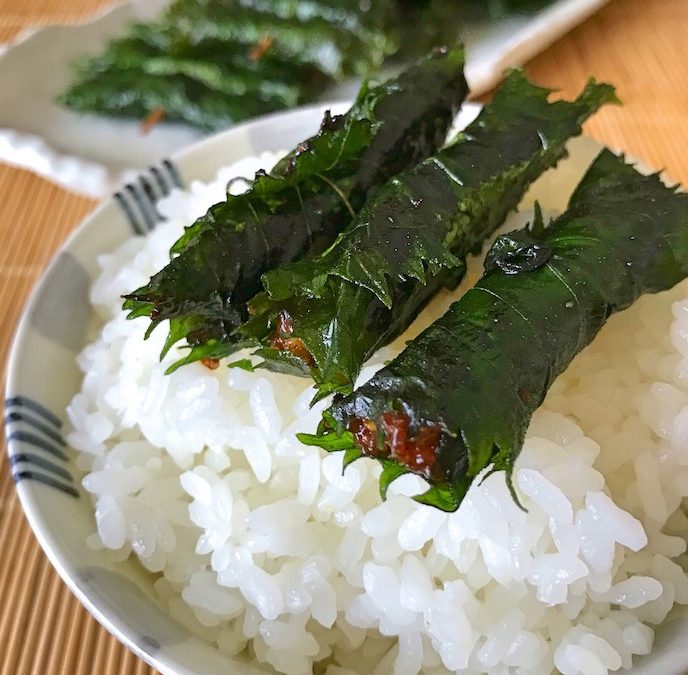
by Elizabeth Andoh | Aug 2, 2019 | Kitchen Culture, Summer
Shiso maki rolls, skewered and seared. Japan’s Tohoku region is justly famous for its walnuts – large, meaty orbs that produce an incredibly rich, aromatic paste when roasted and crushed – and its miso – a full-bodied red (burnished brown, really) fermented soybean...
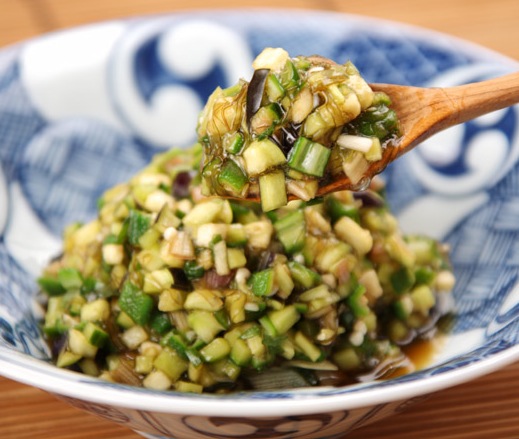
by Elizabeth Andoh | Jul 22, 2019 | Kitchen Culture, Summer
Chopped eggplant, cucumbers, okra and herbs such as shiso and myōga make salsa-like Dashi 山形だし Yamagata Dashi Somewhere between a salsa and chutney, Yamagata’s summertime signature dish Dashi is a refreshing mixture of chopped vegetables and herbs. It often tops cubes...
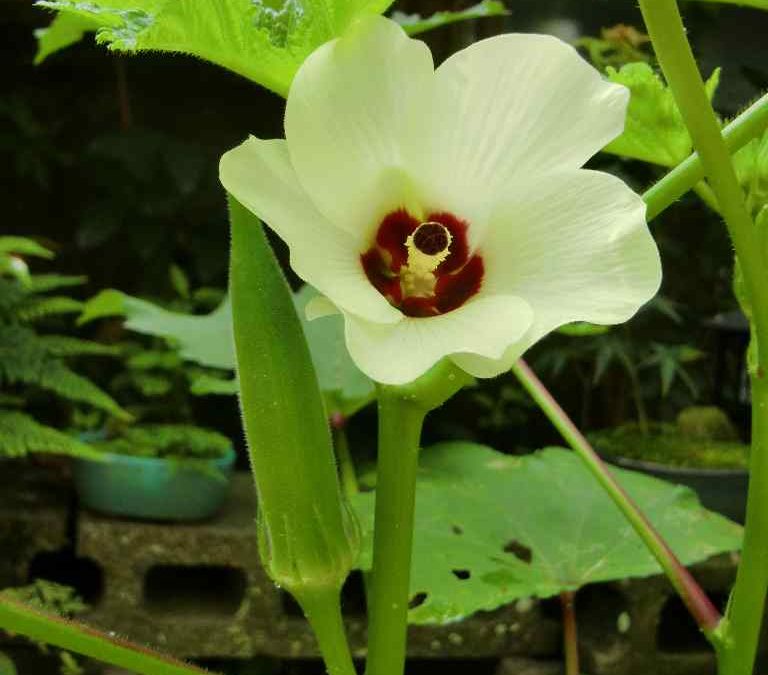
by Elizabeth Andoh | Jul 12, 2019 | Kitchen Culture, Year-Round
TRIM (left)・SALT-RUB (top right)・FLASH-BLANCH (center right)・STEEP (bottom right) OKRA オクラ The Japanese technique for preparing okra heightens its color (jade green) and flavor (reminiscent of green beans and/or asparagus) while limiting its sticky texture. There are...

by Elizabeth Andoh | Jul 2, 2019 | Kitchen Culture, Summer
HIYA YAKKO 冷奴 When you see an item on a menu being described as HIYA, it means that dish will be served chilled. Pictured above is classic Hiya Yakko, blocks of cold tōfu garnished with grated fresh ginger, chopped scallions and curly flakes of smoky, dry-roasted...
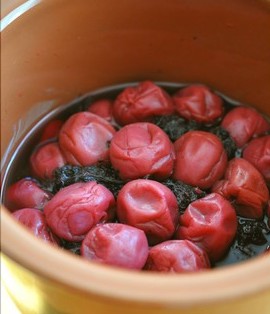
by Elizabeth Andoh | Jun 22, 2019 | Kitchen Culture, Summer, Year-Round
Uméboshi 梅干し and aka-jiso leaves After many weeks of bathing submerged in salty-sour, rosy-colored umézu this year’s plums are ready to be air-dried… the final stage of plum work (umé shigoto). What’s needed is a string of dry days, what’s known as umé no...
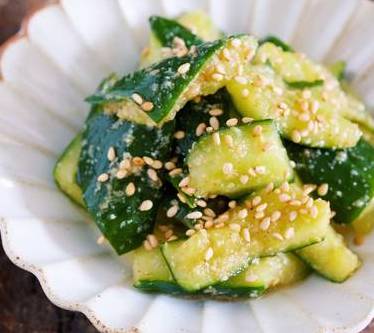
by Elizabeth Andoh | Jun 12, 2019 | Kitchen Culture, Year-Round
Smashed cucumbers dressed with sesame-soy vinaigrette-style dressing, garnished with toasted sesame seeds. Smashed Cucumbers with Toasted Sesame Tataki Kyuuri no Goma Aé たたき胡瓜の胡麻和え Most supermarkets in Japan set up a small table at the back of their produce section...
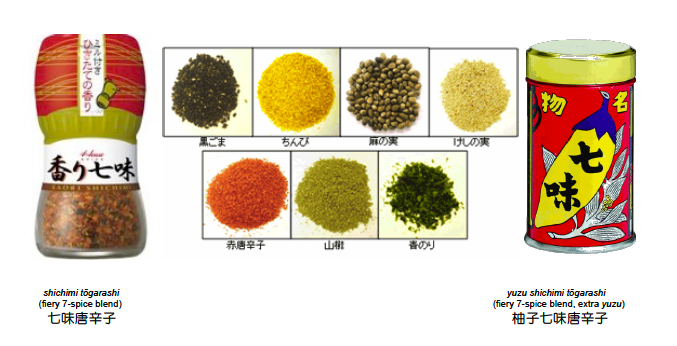
by Elizabeth Andoh | Jun 2, 2019 | Kitchen Culture, Year-Round
Classic KIMPIRA, stir-fried slivers of carrot and gobō (burdock root) finished with 7-spice blend and toasted sesame seeds. Kimpira & 7-spice blend (shichimi tōgarashi) 金平・七味唐辛子 The original seventeenth century dish called kimpira was made from finely whittled...








